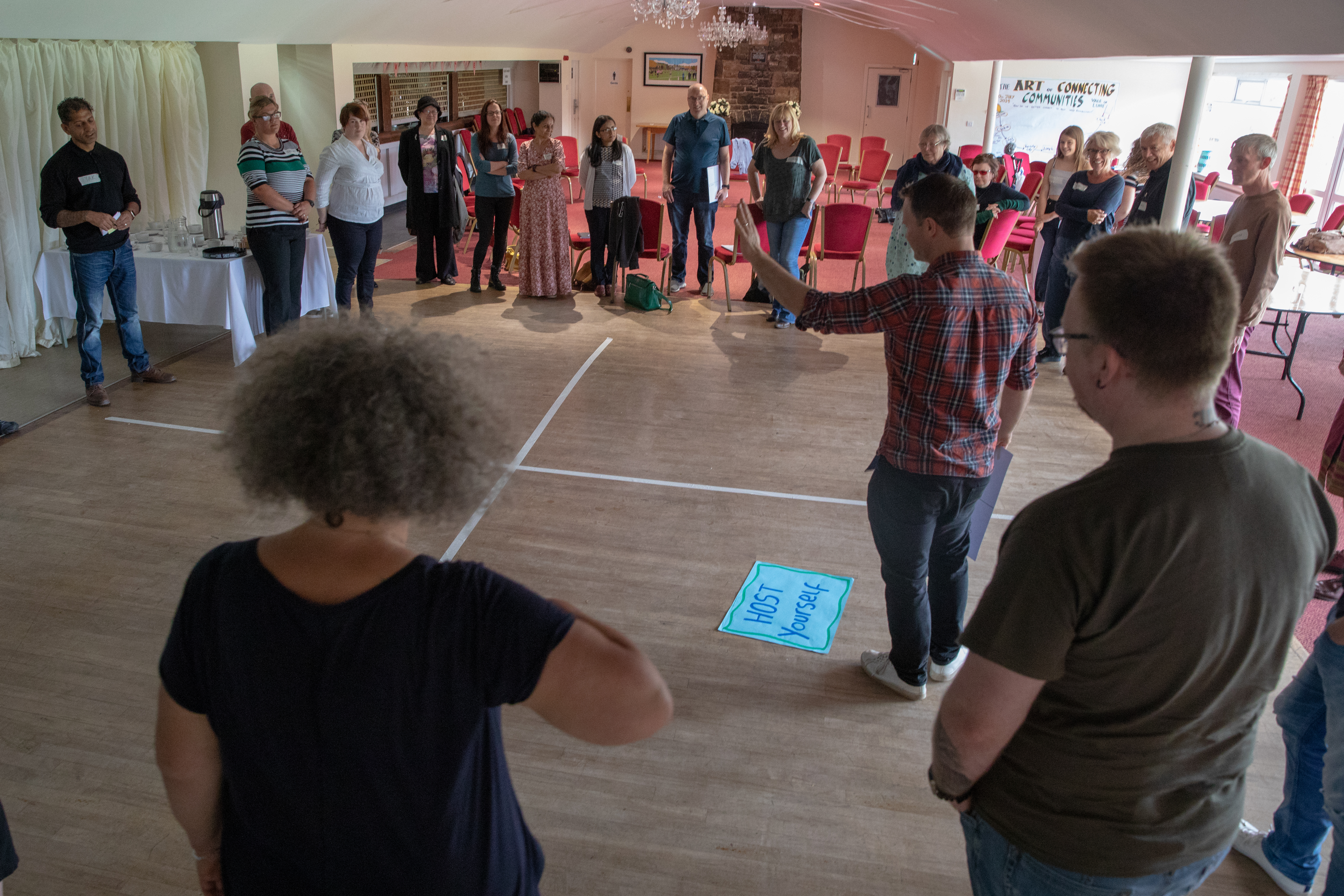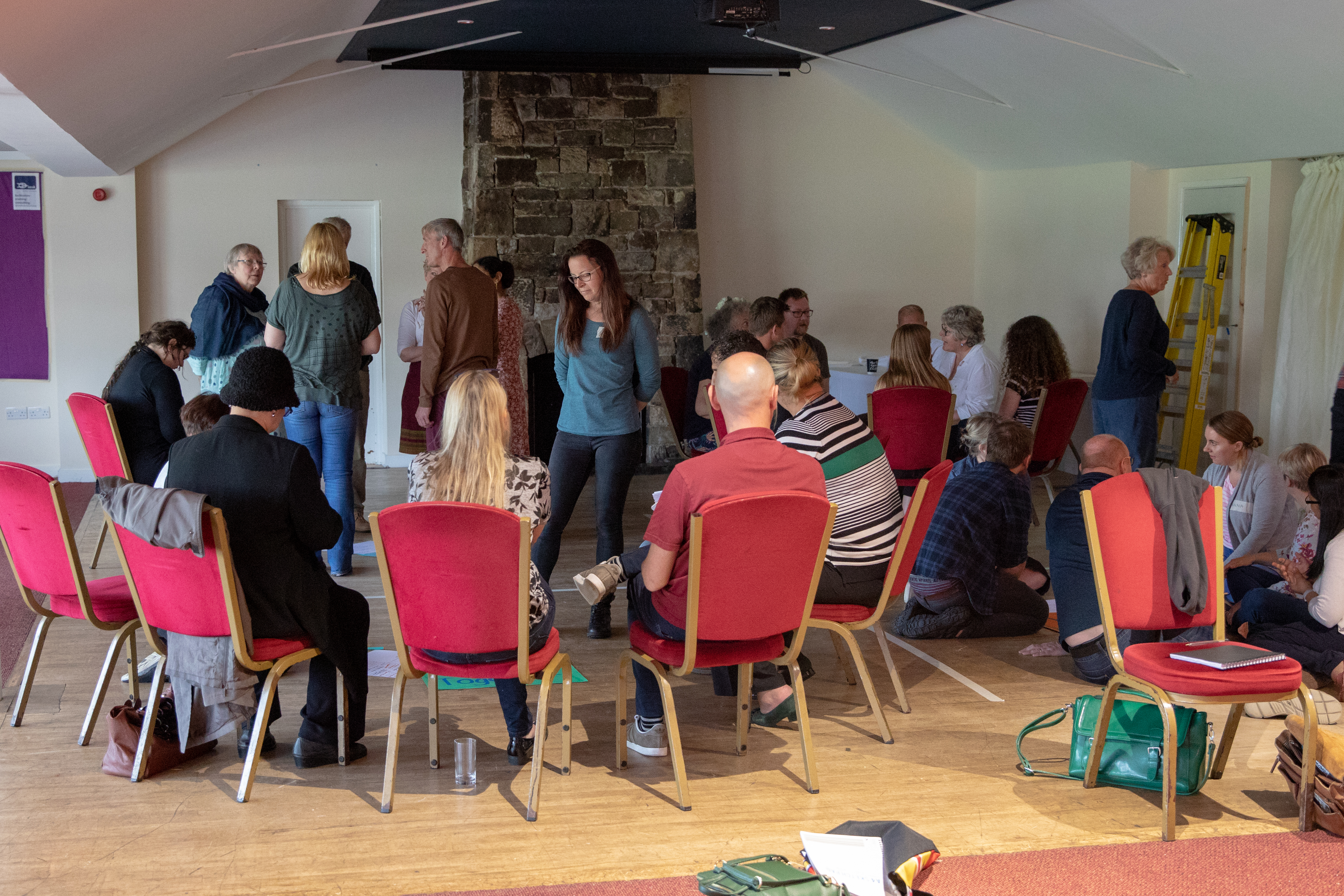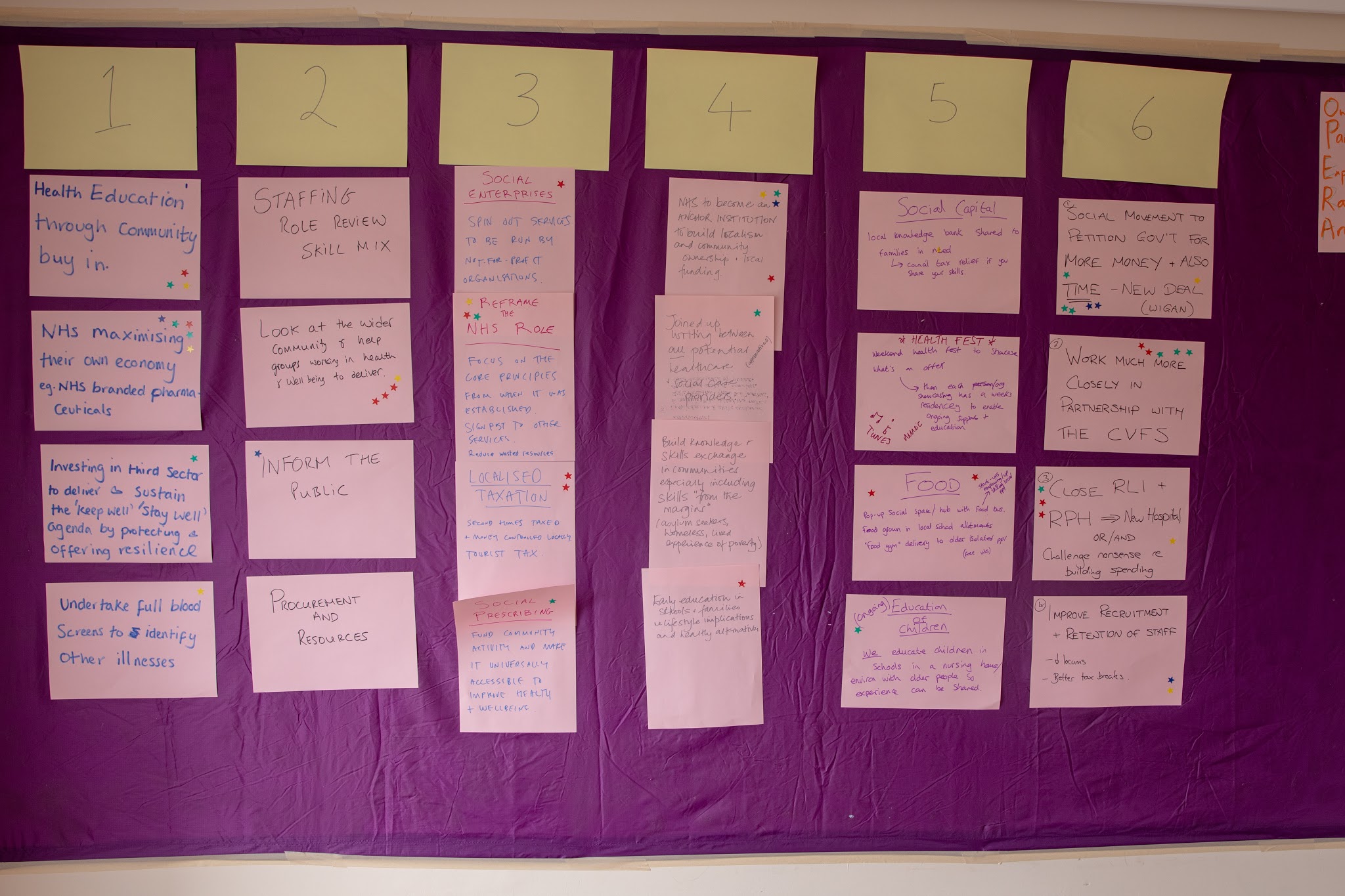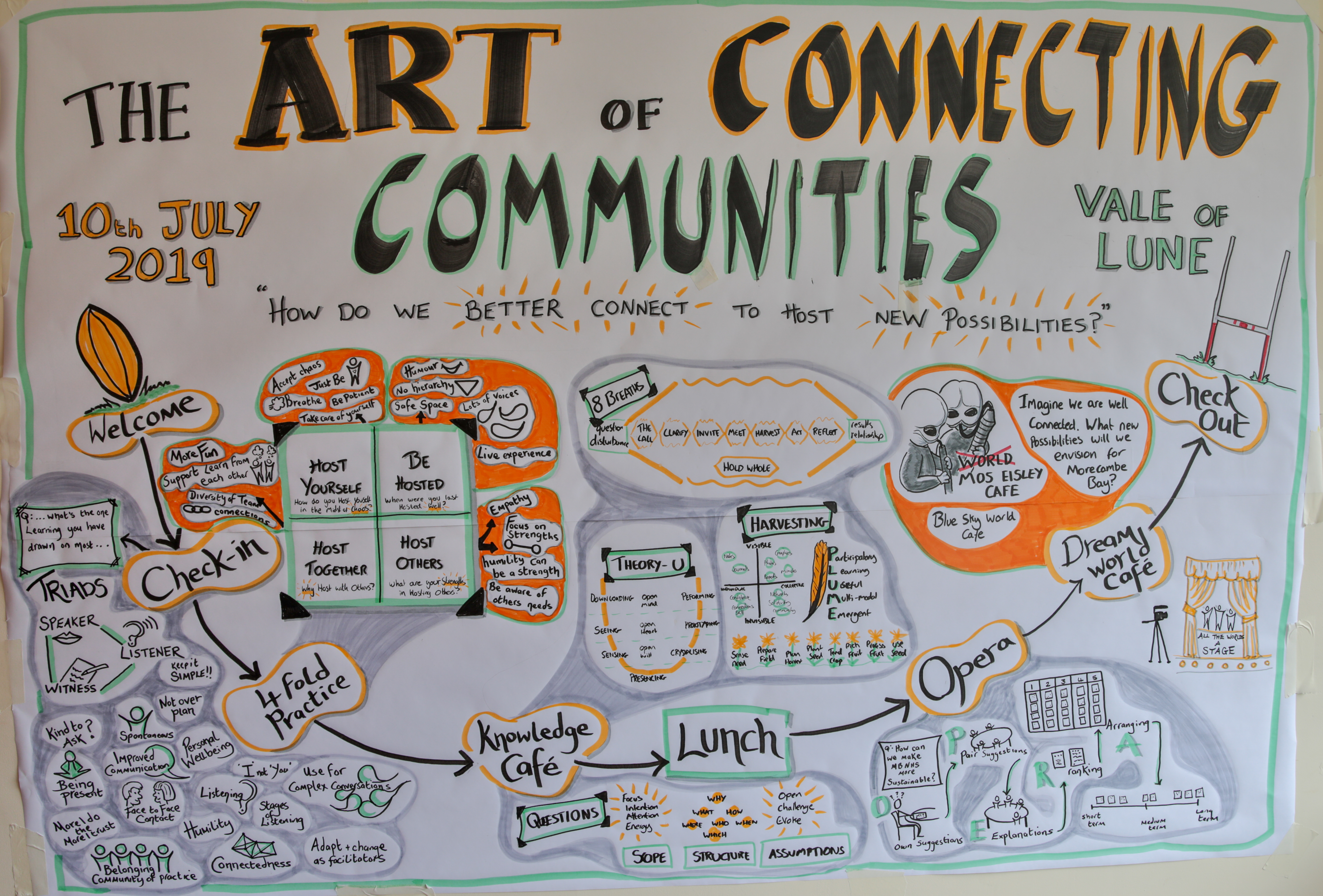So….as has become our custom in Morecambe Bay, we tend to deliver the ‘Art of Hosting/Art of Connecting’ trainings over 3 days, but we have a bit of a break after the 2nd day and then invite people back a few weeks later, partly to let us know what they’ve tried out in the mean time, but also so we can invite our wider community of practice back into the fray!
 Or 3rd day of ‘The Art of Connecting Communities’ focussed in on how our connections create new possibilities. As a team we felt like we needed to ground a bit more of the undergirding theory that gives depth to this way of working, as well as remembering some of the great practices involved. We checked in, this time using triads, to help us get a bit deeper straight away and then we headed into a 90 minute immersive and reflective piece of learning on the four-fold practice. We drew out a quadrant on the floor to represent the four different ways of thinking about ‘hosting’ and then used circle practice in each quadrant to really reflect together on what it means to: host yourself, be hosted, host others and host together.
Or 3rd day of ‘The Art of Connecting Communities’ focussed in on how our connections create new possibilities. As a team we felt like we needed to ground a bit more of the undergirding theory that gives depth to this way of working, as well as remembering some of the great practices involved. We checked in, this time using triads, to help us get a bit deeper straight away and then we headed into a 90 minute immersive and reflective piece of learning on the four-fold practice. We drew out a quadrant on the floor to represent the four different ways of thinking about ‘hosting’ and then used circle practice in each quadrant to really reflect together on what it means to: host yourself, be hosted, host others and host together.
In each of the quadrants we put a question for the circle to explore. Learning to host and host well is a shift in practice for many of us. But it is a leadership style that is open to all and gives each person a deep sense of value and confidence.
in practice for many of us. But it is a leadership style that is open to all and gives each person a deep sense of value and confidence.
In the ‘host yourself’ quadrant we asked: How do you host yourself well in the midst of chaos? There were some really creative insights. Some which stood out were: Breathe! Be Patient. Just be. Take care of yourself. Accept Chaos.
In the ‘be hosted’ quadrant we asked: When were you last hosted well? Our key agreements were that humour really helps, along with knowing the space is safe, there is no hierarchy, lots of voices are recognised and given space and lived experience is given space to come to the fore.
In the ‘host others’ quadrant we asked: What are your strengths in hosting others? It would be fair to say that this is the question that people struggled the most at. we are so used to knowing what we don’t do well, that we felt a bit of ‘Appreciative Inquiry’ was needed. We all realised that we have strengths to bring to hosting and it’s ok to play to our strengths. It allows us to use empathy and bee aware of the needs of others as well as using humility.
In the ‘host with others’ quadrant we asked: Why host with others? There are, of course, tonnes of reasons, but the ones which stood out for us were: it’s more fun, we learn from each other’s, we support each other, we play to each other’s strengths, we value our diversity and we make better connections.
We then had a ‘knowledge cafe’, which enables some quick space for learning about things people might want to go a bit deeper on. It’s adult-led learning! We had 3 rounds of 15 minutes in which people could choose to go to 3 of 4 options around core theory for the ‘art of hosting’:
Working with Powerful Questions
After lunch we then had an OPERA! No – we did not all start singing (although much more the shame in my view!). Opera is an excellent way of helping to converge a conversation around consensus and decision making. It’s a beautifully relational and democratic process in which a group of people can make collective sense of the options available to them and what they feel really need to be the priorities.
We used OPERA to explore a question around saving money in the NHS locally. Basically what happens is this:
 First you have to ask a good question! Ours was “What ideas do you have about how the NHS can save £120million pounds over the next 3-5 years (with some context given of the issues involved)?
First you have to ask a good question! Ours was “What ideas do you have about how the NHS can save £120million pounds over the next 3-5 years (with some context given of the issues involved)?
Then everyone works silently on their own to come up with the OWN ideas. After this, they work in PAIRS to agree on their top four ideas. Then they EXPLAIN their ideas to the rest of the group. The group, having heard all the ideas, then RANK them in order before ARRANGING them into groups for action planning. It is quite remarkable to watch this process in action and to see participatory democracy really work in practice! I LOVE IT! There were some really great ideas and it was amazing to see what the group had appetite for and what they resisted or didn’t think would make enough difference. It’s a hugely helpful process that we will use again and again!
To finish our day, we had a ‘dream world cafe’. George Monbiot states that the only way to replace the current narrative we are living in, is not through more data, or compelling facts and figures. The only way ahead for us is to tell a better story – one that we want to live in together – one that awakens our imagination. The problem is that we have forgotten how to tell each other good stories. So, we spent some time doing just that – telling a better story of Morecambe Bay and awakening our imaginations to future possibilities. We asked ourselves: Imagine we are better connected? What new possibilities can we now envision for Morecambe Bay?
Imagine if we kept on doing this – what kind of stories might we tell and begin to live in? Here is a summary of what we came up with (not bad for 45 minutes!) – the last sketch is particularly moving:

